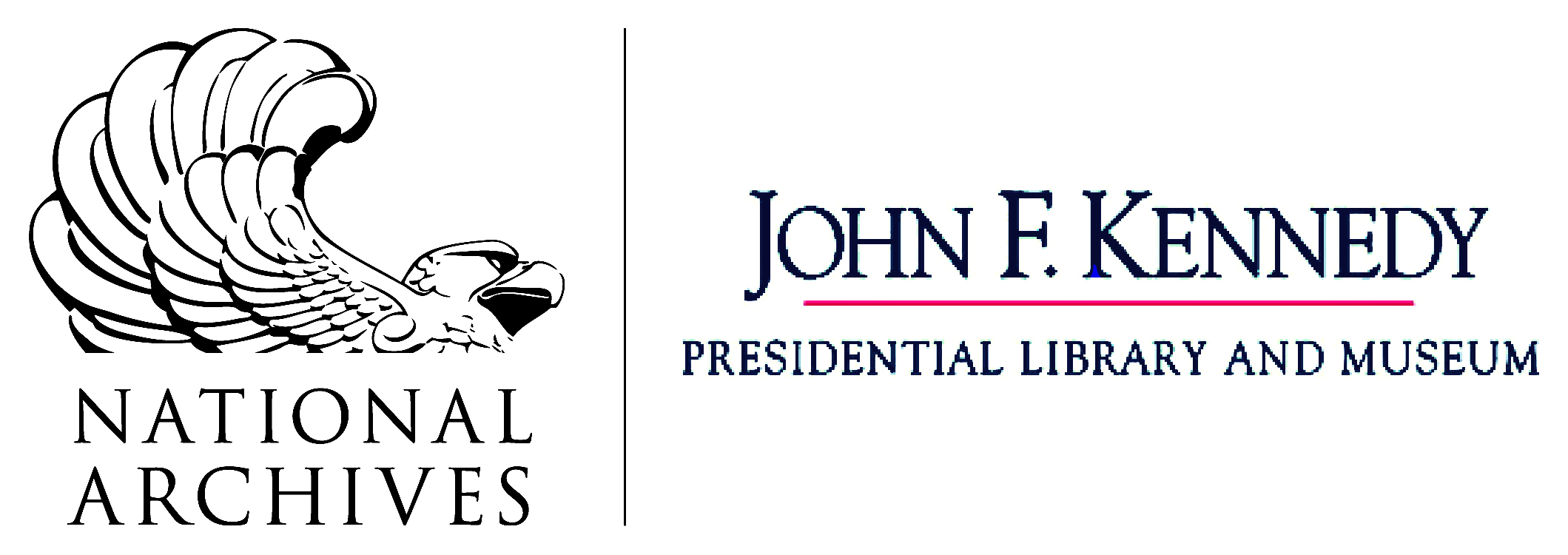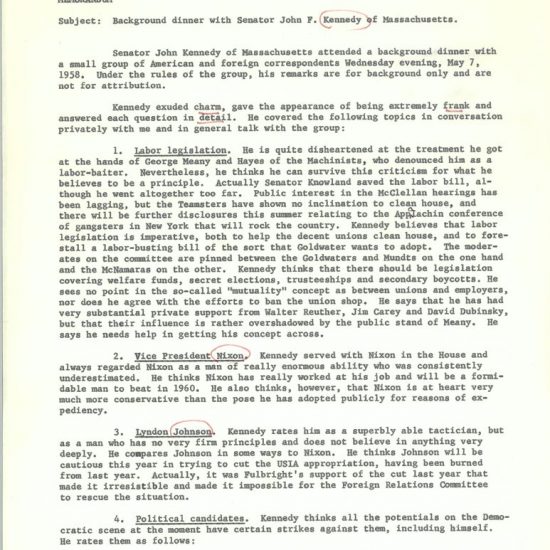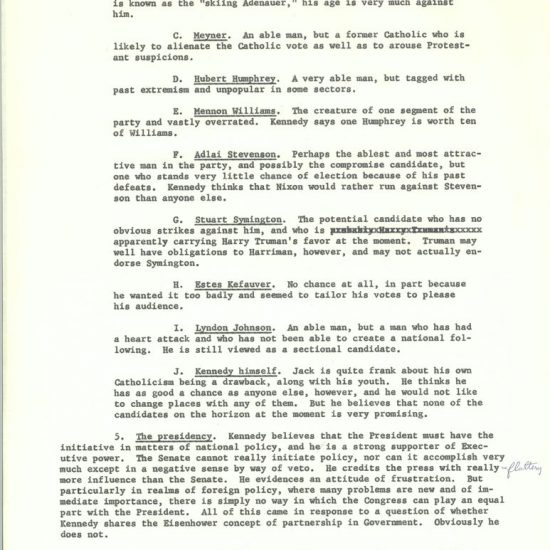By Jennifer Marciello, Processing Archivist
We are pleased to announce the opening of the Chalmers M. Roberts Personal Papers. Roberts was a journalist and author, best known for his time as the chief diplomatic correspondent for the The Washington Post. During his long career, he covered foreign relations, global affairs and politics, and was influential in the Post’s coverage and publication of the Pentagon Papers. Most recently, he was portrayed in this latter role in the newly released 20th Century Fox movie, The Post, by actor Philip Casnoff.
The collection contains a wide range of materials relating to Roberts’s long career as a journalist and author. Spanning the years 1948 to 1975, the collection is comprised primarily of Roberts’s notebooks, memoranda by Post editorial staff regarding news stories covered by the paper, as well as notes, clippings, publications, and drafts relating to Roberts’s work as a journalist and author.
Chalmers McGeagh Roberts was born on November 18, 1910 in Pittsburgh, Pennsylvania. He graduated in 1933 from Amherst College in Massachusetts, where he was an editor of the school newspaper. Soon after graduating, he moved to Washington D.C. where he took a job as a cub reporter for the Post; he then went on to work at the Associated Press in Pittsburgh as well as the Toledo News-Bee in Ohio.
In the 1930s, Roberts toured Europe with college friend Alfred Friendly, and witnessed the rise of Adolf Hitler. From 1938 to 1939, Roberts took a job with The Japan Times stationed out of Tokyo, where he traveled throughout Korea, China and Mongolia, and upon his return to the United States began working for the Washington-Times Herald, then the Washington Daily News. After the bombing of Pearl Harbor, he enlisted in the U.S. Army Air Corps and worked in the Office of War Information. During his service, Roberts was assigned to escort Eleanor Roosevelt on her tour of the United Kingdom, and later visited Hiroshima and Nagasaki to inspect the impact of the atomic bombing of those cities. After his military service ended, Roberts briefly worked as the picture editor of Life magazine, then for the Washington Star until he returned to the Post in 1949, where he remained until his retirement in 1971.
During his lengthy career as a journalist, Roberts covered U.S. foreign affairs during a period that included the Korean War, the Vietnam War, and the assassinations of John F. Kennedy, Martin Luther King, Jr., and Robert F. Kennedy; his career spanned most of the Cold War. Roberts reported on topics including, but not limited to, diplomacy, the Supreme Court, Congress, political campaigns, civil rights, and nuclear arms control. He covered the administrations of Truman, Eisenhower, Kennedy, Johnson, and Nixon. Some examples of Roberts’s coverage of the political career, candidacy, and presidency of John F. Kennedy follow.
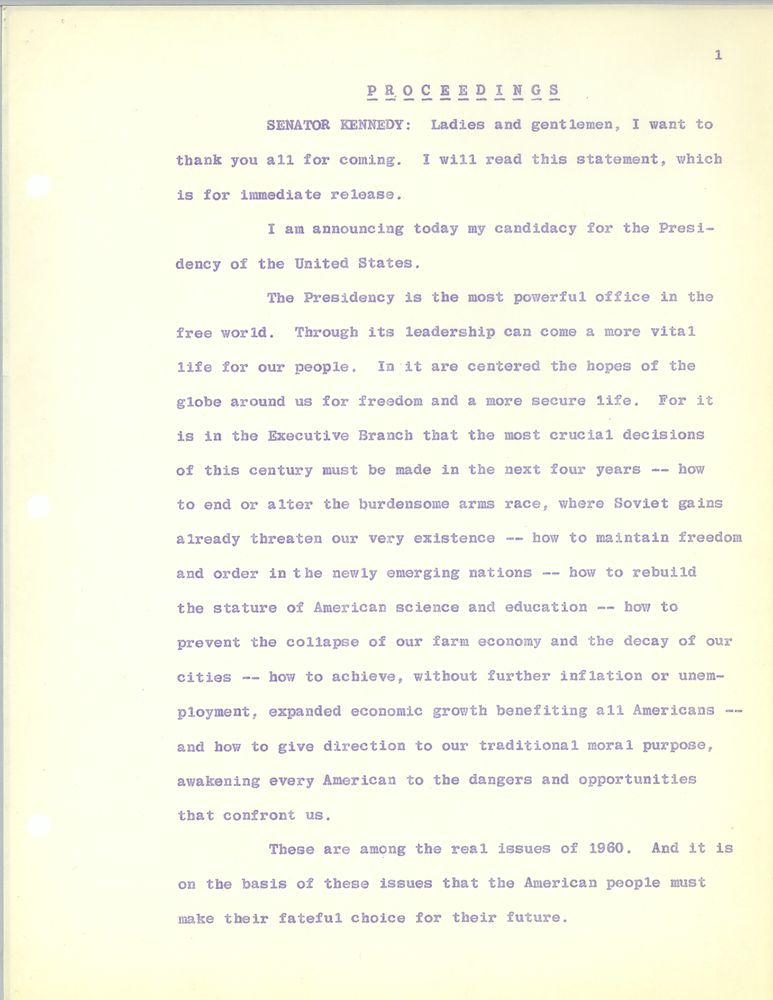
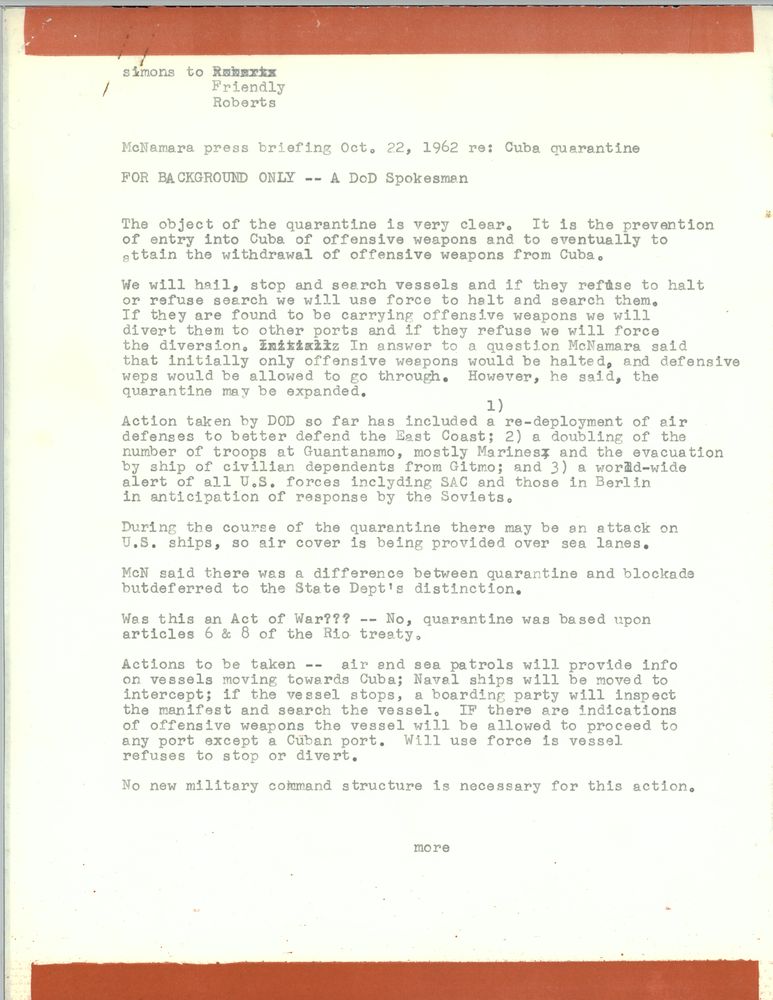
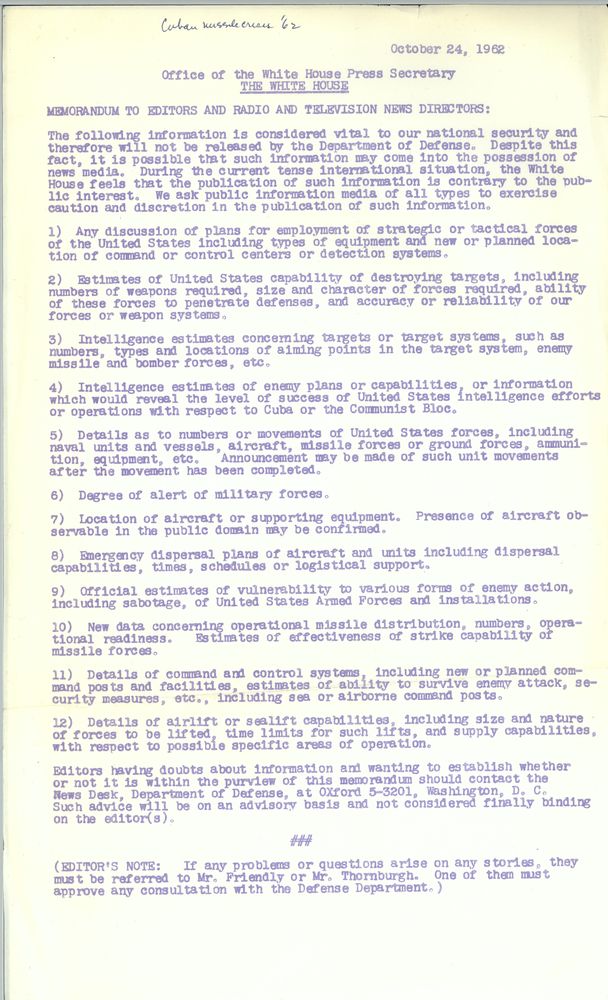
Roberts’s most controversial and well-known assignment was his 1971 coverage and publication of the Pentagon Papers for The Washington Post. Roberts wrote the principal articles about the Papers for the Post, and due to his work was named as a defendant in the federal injunction by the Nixon administration to stop the publication.
Through the course of his life, Roberts published and edited numerous books including, Washington Past and Present (1950); Can We Meet the Russians Half-Way? (1958); First Rough Draft: A Journalist’s Journal of Our Times (1973); The Washington Post: The First 100 Years (1977); and How Did I Get Here So Fast? Rhetorical Questions and Available Answers from a Long and Happy Life (1991).
Roberts died of congestive heart failure on April 8, 2005 at his home in Bethesda, Maryland.
A detailed guide to the Chalmers M. Roberts Personal Papers is available on our website.
